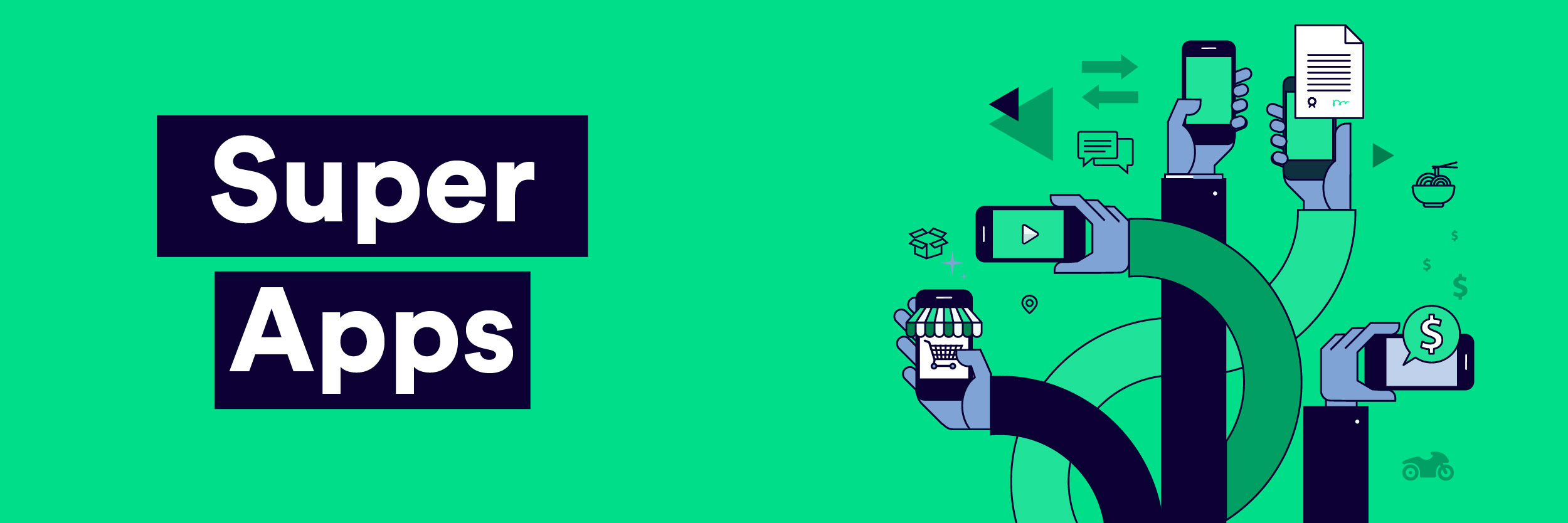
More than just an app
Super apps have the potential to bring convenience and simplicity to consumers as well as financial inclusion according to Fardad Zand, head of strategy and super app incubator at Middle East SuperApp Careem, who spoke with Ding’s chief commercial officer Rupert Shaw in a virtual panel at the RiseUp Summit which took place on December 10th.
Super apps originally started off in China, with WeChat and Alipay and soon spread to South East Asia, India and Latin America and are now emerging with force in the Middle East. What these markets all have in common according to Zand is not only their large youth population, but also the “mobile first” experience they have of the internet. While consumers in the West have shunned such platforms since their primary experience of the internet first took place on desktops and laptops, consumers in the Middle East typically experience the internet on their mobile phones, which lends itself more easily to the super app experience.
Careem has over the past year pursued its super app strategy, developing its platform to add more third-party services including food delivery, online grocery and online shopping.
“In a sense it is more than just a single app, you’re talking about a single platform, an ecosystem of players connecting to each other and providing better services to their customers,” said Zand.
According to Shaw: “Consumers typically now don’t want 20-50 apps on their phones and super apps have a reach and scale that can tap into several different markets and attract a wide variety of partners. The challenge for super apps like Careem then is how they can be a trusted partner for other people’s services.”
By providing this platform, the logistics and digital infrastructure, Careem is hoping to offer convenience not only to its customers, but third-party service providers like Ding who can plug into its network and begin offering their products and services to tap into its vast network. This cuts the need for large budgets to acquire customers and simplifies the logistics, delivery and payments processes. To build up the trust for both consumers and its partners requires transparency, fairness and governing rules for the platform according to Zand.
Financial Inclusion
Given the region’s high unbanked population, Careem has a unique position to be able to offer its users financial products and services through its mobile wallet.
“The majority of the region, except in a few countries, we see many of them don’t have a bank account, with one single digital wallet, we can bring you financial products. When everything is digitally saved in one place, in a trusted place, it will open financial services to a much wider sector of society,” said Zand.
This will cut the need for lengthy approval processes and will crucially provide data on consumer behaviour and consumption patterns of all the partners on the platform over time, which will give predictions on future habits and actions. This can then enable Careem to facilitate credit rating and can give the third-party service providers on its platform access to microfinancing.
“There is abundant opportunity, we’ve already tried out smaller scale microfinancing to our captains [drivers]. The challenge to some extent is the regulatory licensing environment, we will need to partner with a bank or acquire the licences and we’re trying to get over this challenge,” said Zand.
Diversity
The markets in which Careem operates differ, culturally and socially and so its super app is not a “one size fits all” according to Zand.
“Every country will have its own version of the super app, in the future if you open Careem in Pakistan or the UAE you will see a different home page. In the future it will be country specific, we might get to a city version of our super app in the very long run,” he said. “People face different challenges and so we need to have different versions, which means different partnerships and different service categories.”